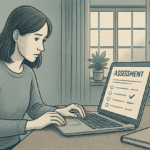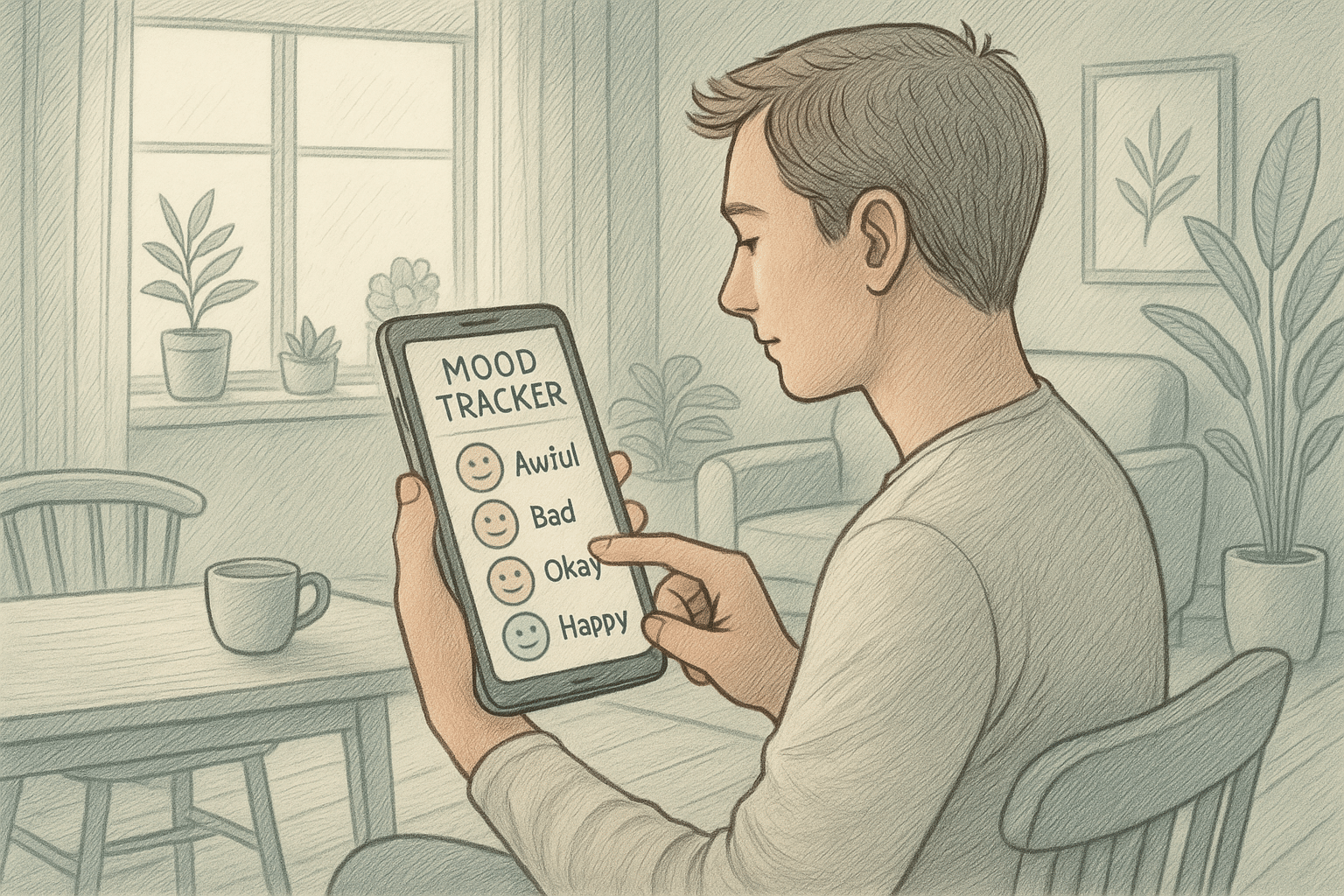
Key Takeaways
- Bipolar disorder mood tracking can help you identify patterns in mood swings and recognize triggers that lead to manic or depressive episodes.
- Mood trackers can be digital apps or simple journals; both have their unique advantages.
- Sharing mood logs with healthcare professionals can enhance the effectiveness of treatment plans.
- Consistency in mood tracking is key to gaining accurate insights and improving mental health management.
- At Mission Connection Healthcare, we integrate mood tracking into our comprehensive bipolar treatment approach, using your tracking data to develop personalized treatment plans.
Bipolar Disorder Overview
Bipolar disorder is a mental health condition characterized by significant mood swings, including emotional highs (mania or hypomania) and lows (depression). These mood swings can affect sleep, energy, activity, judgment, behavior, and the ability to think clearly. Understanding bipolar disorder is the first step in managing it effectively.
Understanding Bipolar Disorder
Bipolar disorder affects millions of people worldwide, and it often begins in late adolescence or early adulthood. The condition can vary greatly from person to person, making it a complex disorder to manage. You should understand that bipolar disorder is not just about mood swings; it can impact every aspect of life, from relationships to work.
In bipolar disorder, mood swings can be intense and unpredictable; a person may feel euphoric and full of energy during a manic episode and then plunge into a deep depression. These episodes can last for days, weeks, or even longer. The unpredictability of these mood swings is what makes managing bipolar disorder challenging.
Mission Connection offers flexible outpatient care for adults needing more than weekly therapy. Our in-person and telehealth programs include individual, group, and experiential therapy, along with psychiatric care and medication management.
We treat anxiety, depression, trauma, and bipolar disorder using evidence-based approaches like CBT, DBT, mindfulness, and trauma-focused therapies. Designed to fit into daily life, our services provide consistent support without requiring residential care.
How Can a Mood Tracker Help?
A mood tracker is a tool designed to help individuals monitor their mood patterns over time. It can be as simple as a daily journal or as sophisticated as a digital app. The primary purpose of a mood tracker is to provide a clear picture of mood fluctuations, which can be invaluable for managing bipolar disorder.
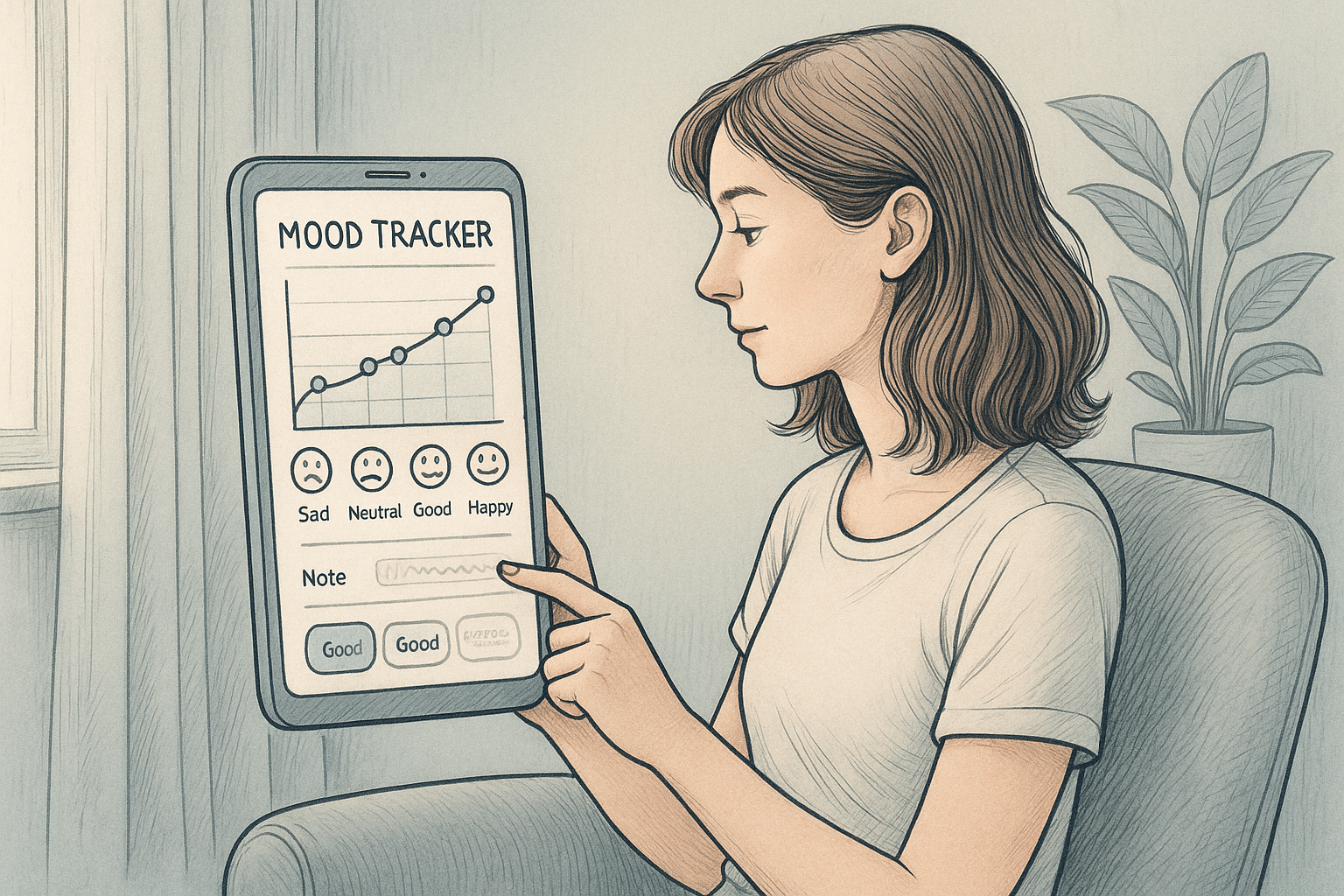
Documenting Mood Changes
Documenting mood changes involves recording how you feel at different times of the day. This could include noting your emotional state, energy levels, sleep patterns, and any significant events that might have influenced your mood. Consistent documentation helps in creating a comprehensive log that can be analyzed for patterns.
Detecting Patterns and Triggers
Once you’ve gathered enough data, you can begin to detect patterns in your mood swings. For example, you might find that your mood dips consistently at certain times of the month or after specific events. Identifying these triggers is crucial for managing bipolar disorder effectively.
Benefits of Regular Tracking
Regular mood tracking empowers you to take control of your mental health by providing tangible data that can be used to adjust treatment plans. Also, it makes it easier for you to communicate with your healthcare provider so that they have a complete understanding of your condition.
Additionally, mood tracking can help you develop coping strategies. By understanding what triggers your mood swings, you can implement strategies to mitigate their impact.
Using a Mood Tracker
Daily Logging Techniques
To get the most out of a mood tracker, establish a routine for daily logging. This means setting aside time each day to record your mood, energy levels, sleep patterns, and any significant events.
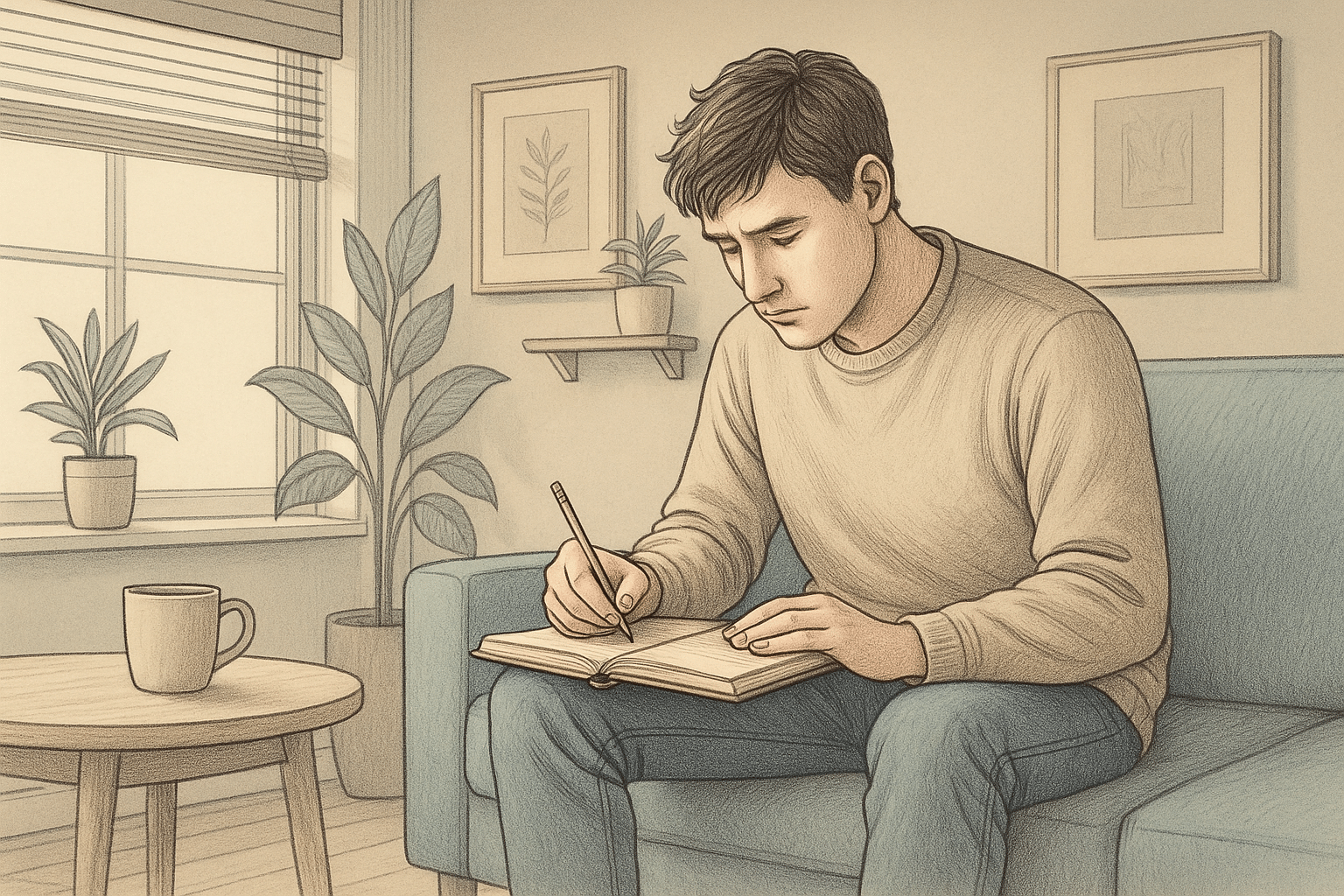
Consider using a simple scale to rate your mood, such as from 1 to 10, where 1 is very low and 10 is very high. Additionally, jot down any notable experiences or stressors that might have influenced your mood that day. A detailed logging will provide a clearer picture of your emotions over time.
Effective Tools and Apps
There are numerous tools and apps available for mood tracking, each with unique features. Digital apps like Moodpath, eMoods, and Daylio offer user-friendly interfaces and functions such as reminders, mood graphs, and data-sharing options. These apps can be a convenient way to track moods on the go.
Some individuals prefer the tactile experience of writing in a physical journal. A mood journal can be customized to include specific sections for mood ratings, notes, and reflections. This approach can be particularly beneficial for those who find writing therapeutic.
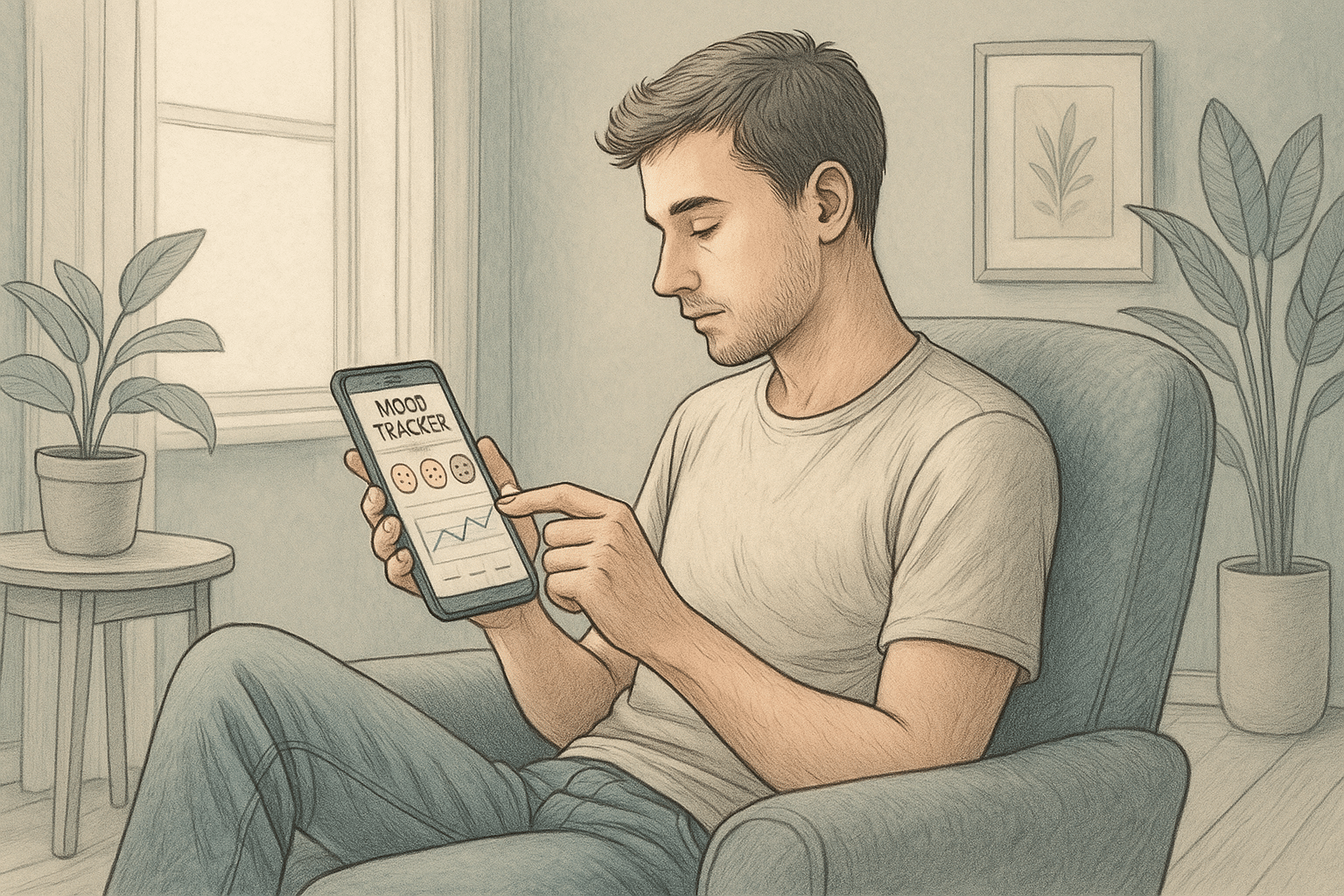
Sharing Data with Healthcare Professionals
One advantage of mood tracking is the ability to share your data with healthcare professionals. This information can be invaluable during consultations because it gives a comprehensive view of your mood patterns and potential triggers. Your healthcare provider can use this data to tailor treatment plans more effectively.
When sharing your mood logs, be open to discussing any observations or insights you’ve gained. This collaborative approach ensures that your treatment is personalized and responsive to your needs. Remember: mood tracking is a tool to empower you and your healthcare team in managing bipolar disorder.
Optimizing Mood Tracking
Consistency
Aim to log your mood at the same time each day to establish a routine. This consistency helps with creating a reliable dataset that accurately reflects your mood patterns over time. If you miss a day, don’t be discouraged—simply resume tracking as soon as possible.
Consider setting reminders on your phone or calendar to prompt you to log your mood daily. These reminders can help you maintain the habit, especially during busy or stressful periods.
Analyzing Mood Data
Once you’ve gathered enough mood data, it’s time to analyze it for patterns and insights. Look for trends such as recurring triggers or times of the day when your mood tends to fluctuate. Identifying these patterns can inform lifestyle changes or adjustments to your treatment plan.
Consider discussing your findings with your healthcare provider to gain a professional perspective on your mood data. They can help you interpret the data and suggest interventions or strategies to manage your mood more effectively.
Incorporating Self-Reflection
Self-reflection is an integral part of mood tracking. Take time to review your mood logs and reflect on your emotional journey. Consider writing down any insights or realizations you gain from this reflection process.
Self-reflection can also help you develop greater self-awareness and emotional intelligence. By understanding your emotional triggers and responses, you can cultivate coping strategies that promote emotional resilience and stability.
Mission Connection’s Approach to Bipolar Mood Disorder
A bipolar disorder mood tracker is more than a daily log—it’s a powerful tool that shows the patterns in your emotions, providing insights that can transform your management of this complex condition. At Mission Connection Healthcare, we understand that effective bipolar treatment requires both comprehensive professional care and empowered self-management.
That’s why we incorporate mood tracking into our personalized treatment plans—so that you can recognize your unique patterns and early warning signs of mood shifts. Our experienced clinicians in California, Virginia, and Washington help you interpret your tracking data and use it to fine-tune medication, therapy, and lifestyle interventions that stabilize your mood more effectively.

With Mission Connection’s integrated treatment model, you’re not just collecting information—you’re building a foundation for lasting stability and improved quality of life.
Don’t manage bipolar disorder alone. Contact Mission Connection today to learn how our evidence-based approach to bipolar treatment can help you achieve greater emotional balance and well-being.
Call Today 866-833-1822.
Frequently Asked Questions (FAQs)
How does mood tracking help with managing bipolar disorder?
Mood tracking provides a detailed record of mood fluctuations, triggers, and patterns, which is invaluable for identifying triggers and developing coping strategies. It also aids healthcare providers with tailoring treatment plans to individual needs.
Regular mood tracking allows individuals to take proactive steps in managing their condition, ultimately leading to improved emotional stability and quality of life.
Can a mood tracker replace professional therapy?
While mood trackers are valuable tools for monitoring mood patterns, they are not a substitute for professional therapy. Mood trackers complement therapy by providing data that can enhance treatment plans. Therapy offers personalized support, guidance, and strategies that a mood tracker alone cannot provide.
How often should mood data be shared with a therapist?
Sharing mood data with your therapist should be done regularly, ideally at each session. This consistent sharing ensures that your therapist has the most up-to-date information to tailor your treatment plan effectively. Discuss with your therapist to determine the best frequency for sharing data based on your specific needs.
Can mood tracking benefit people without bipolar disorder?
Absolutely! Mood tracking can benefit anyone looking to gain insights into their emotional well-being. It helps identify patterns, triggers, and areas for improvement, making it a useful tool for enhancing mental health, even for those without bipolar disorder.
By tracking your mood, you can develop a deeper understanding of your emotions, leading to better self-awareness and emotional resilience.
How does Mission Connection integrate mood tracking into bipolar treatment?
At Mission Connection Healthcare, we incorporate mood tracking as a core component of our personalized bipolar treatment plans. Our experienced mental health professionals help you select and implement the right tracking system for your needs, then use your tracking data to identify patterns and refine your treatment approach.
This collaborative strategy ensures we address your specific bipolar symptoms effectively by adjusting medication and therapeutic interventions based on objective data rather than memory alone.



